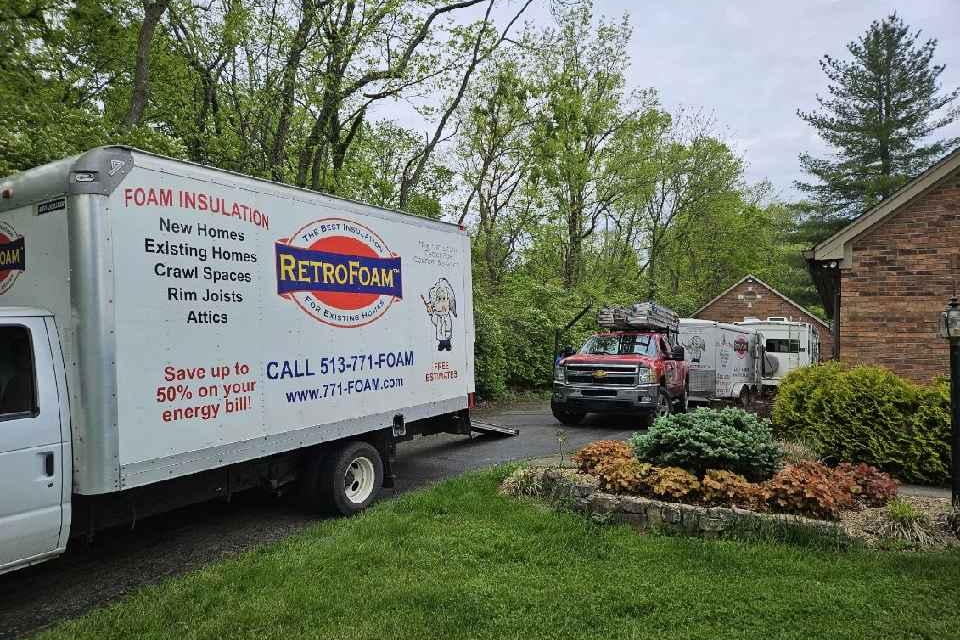Whether for commercial or residential purposes, the need for adequate insulation cannot be overstated. Choosing the correct injection foam insulation company involves evaluating many important factors. With so many providers available, take the time to research and compare the foam materials used, contractor expertise, installation process, equipment quality, cost-effectiveness, and customer reviews. Making an informed decision based on your specific insulation needs and property requirements helps ensure you choose a company you can trust to deliver the expected results.
What is Injection Foam Insulation?
Injection foam insulation is a type of foam that is injected into existing walls to create a tight seal and enhance energy efficiency. This type of insulation aims to air seal your home, leaving no room for air infiltration or exfiltration.
Understanding the Basics of Injection Foam Insulation
Interestingly, the injection foam insulation process differs significantly from other insulation types. The foam insulation is specifically designed to be injected into wall cavities, offering an effective solution for insulating existing homes without causing any major alterations to the structure.
An insulation contractor drills small holes into the wall and then uses specialized equipment to inject the foam into the wall cavities. Once the foam is inside, it fills every nook and cranny, curing to create a tight seal that significantly improves energy efficiency.
The Benefits of Injection Foam Insulation
Injection foam insulation provides powerful thermal protection and air sealing when installed properly. This type of insulation forms an effective barrier against air leaks, helping make homes more energy efficient and reducing utility bills.
Additionally, injection foam resists mold and mildew growth, offering extra protection against moisture damage. It also acts as a sound barrier, helping to reduce noise transmission through walls for a more peaceful home environment. Injection foam’s comprehensive insulating properties allow it to maximize energy savings and comfort when installed correctly.
How to Choose Between Injection Foam Insulation Companies
When it comes to choosing a company to install your injection foam, it’s essential to do your research and make an informed decision. With this specialized service, you need an experienced contractor who thoroughly understands your home’s unique requirements. By evaluating companies based on certifications, materials used, installation process, and proven expertise in insulating homes like yours, you can feel confident choosing a provider that meets your specific insulation needs.
Investing the time to pick the right injection foam insulation partner helps guarantee you will achieve the air sealing, energy efficiency, and long-term home performance you expect.
Factors to Consider When Selecting a Foam Insulation Provider
Here are some key factors to consider when choosing an injection foam insulation company:
- Experience: Look for an established company with years of experience, specifically providing injection foam services. They should have a proven track record insulating homes like yours.
- Materials: Ask about the types of injection foam they use and compare the R-value insulative properties. Higher-density foams tend to provide better insulation.
- Certifications: Choose a company with staff certified in injection foam application. Manufacturer certifications indicate proper training.
- Application Method: Understand their injection process and equipment used. This impacts the quality and thoroughness of the application.
- Coverage Area: Confirm they provide service in your local area and can meet your project requirements.
- Reviews: Check reviews and testimonials from past clients to gauge the quality of service and expertise.
- Pricing: Get multiple quotes to evaluate pricing differences. Make sure to compare the total cost of service.
The right insulation company will have the experience, materials, training, equipment, and reputation to properly insulate your home with injection foam.
Insulate Your Home with Cincinnati RetroFoam
At Cincinnati RetroFoam, when inspecting your home, we want to ensure everything is in good order before proceeding with your insulation project. We will look for any issues that could compromise safety or performance, like improper venting, outdated wiring, or pest infestations. If any concerns arise, we will notify you and provide recommendations to address them appropriately. Our goal is to provide a comprehensive assessment so we can tailor our insulation solution to your home’s specific needs and conditions.
Since 2015, Cincinnati RetroFoam has provided superior insulation services that aren’t offered elsewhere. If you’re looking to insulate walls with injection foam or you want to insulate another part of your home, we are your trusted guide. In addition to our Retrofoam insulation, we offer blown-in and spray foam insulation. We work on existing homes, new construction, pole barns, and commercial properties. Let us help you insulate your space to provide years of lasting comfort.
Contact us today for your free quote.
Frequently Asked Questions
What is the difference between spray foam and injection foam?
The main difference is that injection foam is focused on insulating walls to prevent energy loss, while spray foam can be used effectively for insulating attics, crawl spaces, and exposed surfaces that injection foam does not address. Spray foam also expands, while injection foam just fills and cures.
What is the best insulation for an existing home?
The best insulation for an existing home is injection foam insulation since it can be injected into existing walls to create a tight seal and enhance energy efficiency. Injection foam insulation is specifically designed to be injected into wall cavities, offering an effective solution for insulating existing homes without causing any major alterations to the structure.
What is the best insulation to use in your attic?
Spray foam insulation is the best insulation to use in your attic because it does not break down over time like blown-in insulation does.


